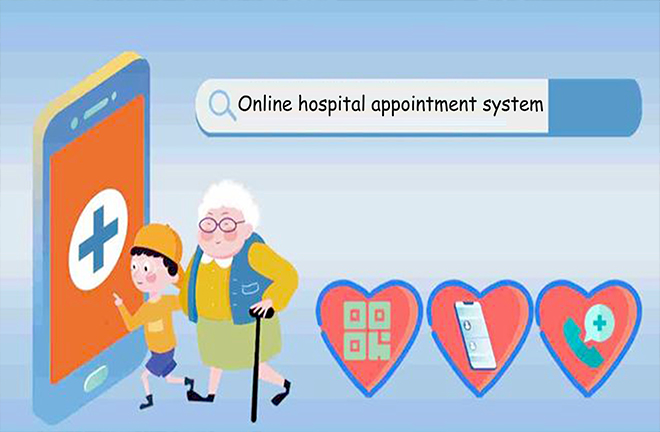Bridging the digital divide among the elderly

FILE PHOTO: For the elderly, using an online hospital appointment system might become a thorny problem.
According to official data released by the National Health Commission of China in 2019, elderly people with cognitive impairment in China total about 9 million, and is expected to exceed 40 million by 2050. Among them, there is a large number of elderly people with mild cognitive impairment, in the intermediate stage between normal aging and dementia.
A group of elderly “drifters” now live in Shenzhen, a typical immigrant city in Guangdong Province. To support their children’s career and take care of grandchildren, they came to Shenzhen from their far away hometowns. Among them, those with mild cognitive impairment are more likely to encounter the impact of the digital divide. The deterioration of memory and increasing physical dysfunction make them more susceptible to risks and apprehensive about technology. It is thus a topic worthy of attention from society as to how to delay the impairments.
Embarrassed digital situations
The ongoing COVID-19 pandemic has made digital life a norm, as people are gradually accustomed to consume, socialize, and entertain themselves through smart phones and apps. But for the elderly with mild cognitive impairment, it becomes a difficult problem to transcend beyond the digital divide. To show the health QR code, or conduct online consumption… these seemingly easy things become quite difficult for them. The embarrassed situation they face has become an epitome of a hard digital life.
Today, the aging problem in China aggravates. As the fertility rate keeps declining and the average life expectancy increases, the proportion of the elderly in the total population is rising.
A young city with the average age of its residents only 35, the aging problem of Shenzhen has already become prominent. As those who pioneered in starting businesses in Shenzhen in the early years have now retired, the elderly with mild cognitive impairment continue to increase in the city. Whether this issue can be reasonably solved will directly or indirectly affect the plan to build Shenzhen into a Pilot Demonstration Zone. Furthermore, as the COVID-19 pandemic has brought new changes, about half of the elderly population has not accessed the internet in a real sense despite the generally high internet popularity in China. During the pandemic, people’s offline living has grinded to a halt. Being quarantined, their offline life has shifted into an online life. With negative responses, those old “drifters” in Shenzhen thus cannot fit into the quietly changing situation.
Supportive system needed
A model city in guiding the construction of the Guangdong-Hong Kong-Macao Greater Bay Area, Shenzhen needs to display more humanistic concerns in terms of policy formation while attempting to realize urban development by strides. To offer more support to the cognitively disadvantaged group of the elderly, we call for a digitally friendly environment for a more equitable digital life.
Some European countries and the US usually integrate the concept of age-friendliness in laying out policies for senior citizens, and the principle of digital inclusiveness is reflected. For example, Switzerland enacted the Web Accessibility Directive and the Netherlands released the Web Content Accessibility Guidelines. Some of the EU countries have advocated lifelong learning and proposed to set up digital colleges for the elderly. In addition, the Council for Third Age was established in Singapore which dedicates itself to helping the elderly grasp skills of media use through public education and community-based peer assistance.
For China, its unique family culture can play a crucial role in this aspect. Through prevention and intervention, symptoms of those old people with cognitive impairment can be mitigated. During this period of remedying the situation, the support of families is particularly important. The family members, particularly children, can offer direct assistance and inter-generational interaction can be strengthened through face-to-face communication.
In addition, a multi-based social support system should be established to bridge the digital divide. Access to digital services should be made convenient for each community, family, and elder person. Senior-friendly intelligent auxiliary machines should also be equipped in public places where the elderly live. Finally, products that meet the needs of the elderly with cognitive impairment should be developed to activate market opportunities for elderly services.
Tang Yong and Lei Pingrui are from the Department of Sociology and the Immigration Culture Research Center at Shenzhen University, respectively.
Edited by BAI LE
